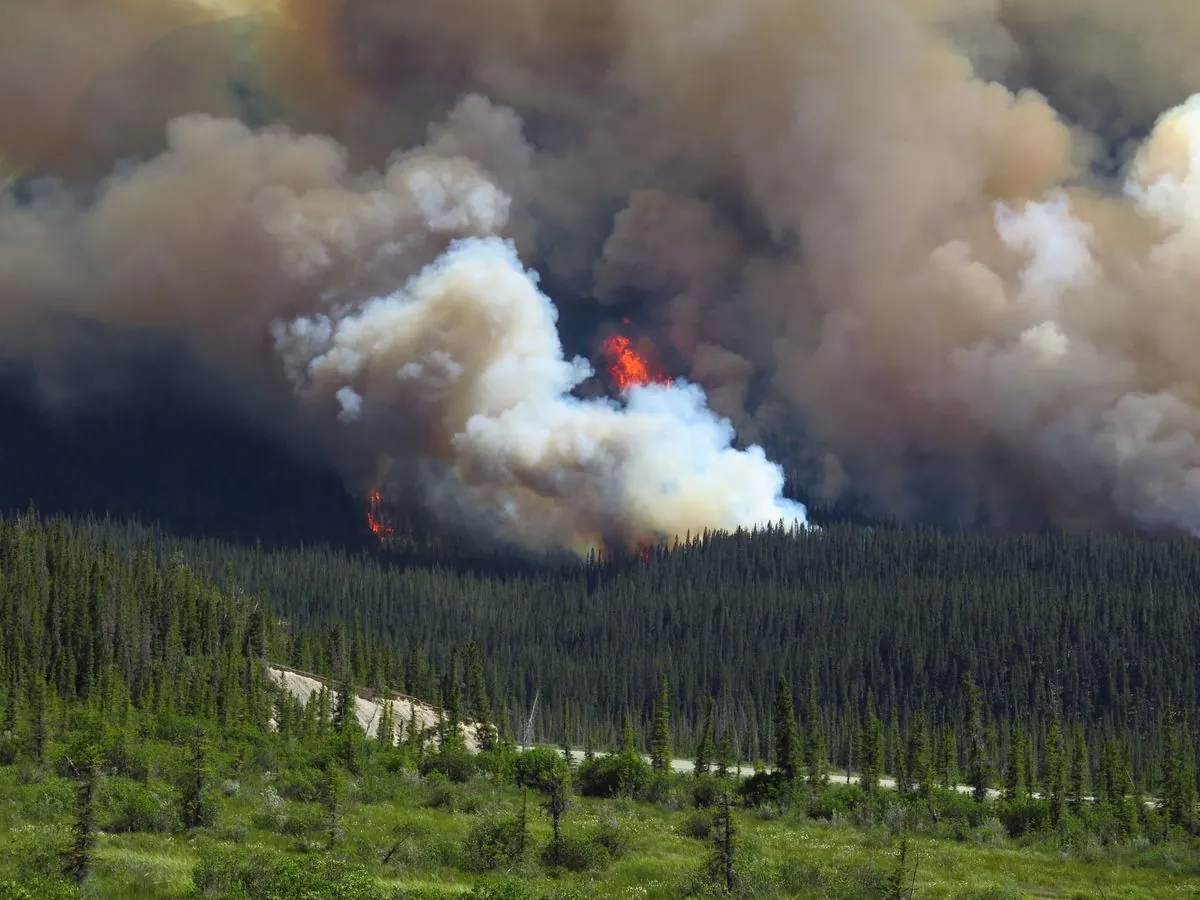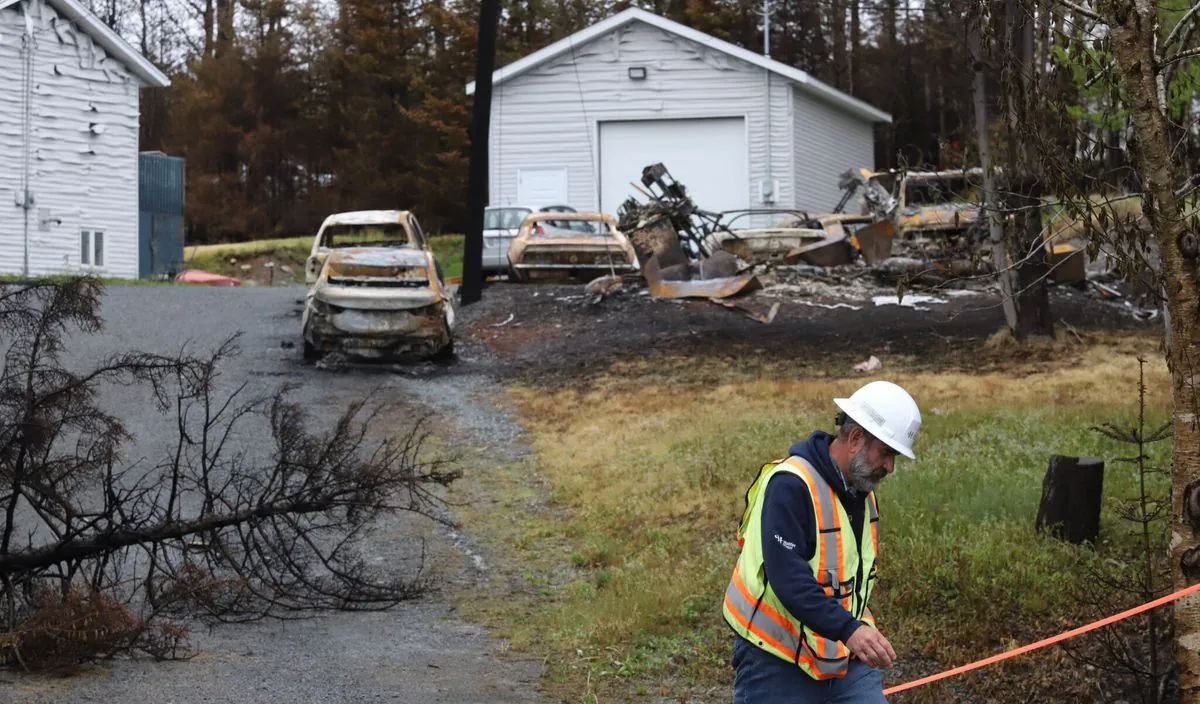Canada's Insurance Industry Strained by Climate-Driven Disasters
Rising climate-related insurance claims in Canada are causing personnel shortages and potential delays. The industry faces challenges as extreme weather events become more frequent and severe.

Canada's insurance sector is grappling with a surge in climate-related claims, leading to a shortage of adjusters and potential delays in claim processing. The situation highlights the growing impact of climate change on the country's vast and forested landscape.
Intact Financial, Canada's largest property and casualty insurer, reported that approximately 250 policyholders experienced damage in Jasper, Alberta, following a recent wildfire. The company anticipates losses within its annual range of C$900 million for all catastrophic events. Similarly, TD's insurance division disclosed that weather events in August, including Calgary hailstorms and Montreal floods, would result in claims and related costs exceeding C$300 million in the fourth quarter.
The frequency and severity of natural disasters in Canada have increased dramatically over the past decade. According to the Insurance Bureau of Canada (IBC), the number of claims tied to extreme weather events has risen by 93% compared to the previous decade, reaching over 1.3 million. This surge has placed immense pressure on insurance adjusters, who play a critical role in assessing damages and determining claim amounts.

Anita Paulic, director of operations and catastrophe response at ClaimsPro, an independent claims management firm, noted the significant increase in catastrophic events: "I remember when I would only get one catastrophic event a year... now we're looking at a dozen of them a year." This escalation has led to adjusters being redeployed to handle multiple disasters simultaneously, from flood claims in Toronto to hail damage in Calgary and wildfire-related claims.
The workload for adjusters has intensified, with some reporting that their file loads have doubled during catastrophic seasons. Kyler Hart-Moore, executive general adjuster at Alberta-based Laurin Adjusters, described the job as a "drop your fork service," emphasizing the need for immediate response regardless of personal circumstances.
"These events have placed immense pressure on insurance adjusters, who are critical following natural catastrophes, as they ensure the industry can support consumers as quickly as possible."
The insurance industry is facing additional challenges due to the retirement of many experienced adjusters and the provincial licensing requirements, which complicate the relocation of adjusters to assess damages in different parts of the country. To address these issues, companies are actively recruiting younger professionals more open to traveling and working in challenging conditions.
As Canada continues to face the impacts of climate change, including more frequent wildfires, hailstorms, and floods, the insurance industry must adapt to meet the growing demand for claims assessment and processing. The situation underscores the need for a robust and flexible workforce capable of responding to the increasing frequency and severity of climate-related disasters across the country.


































